THE DEED
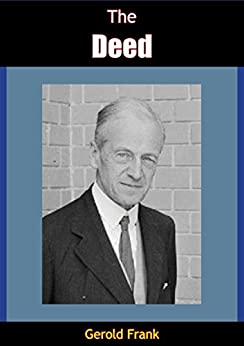
Lord Moyne (or the Right Honorable Walter Edward Guinness, first Baron Moyne) served as British Minister of State in the Middle East until 1944, representing the government that controlled the Jewish people in their internationally declared homeland. In 1922, 1929 and 1936, when Arab riots erupted and Jewish families were slaughtered unmercifully and carved to pieces, the British government reacted by arresting all Jewish men found to own a firearm for use in self defense and sentencing the victims to 7 years of imprisonment.
Moyne's own personal record was nothing to be proud of: "My dear fellow, whatever would I do with a million Jews?" he had asked Joel Brand, a Hungarian Jew who upon his capture claimed that Hitler had agreed to release that many Jews from death camps upon receipt of 10,000 trucks and quantities of tea, coffee, soap and other goods. He had certainly done nothing, moreover, to aid the escape of Jews from Nazi Europe to their internationally mandated home in Palestine.
It was for those reasons, among others, that Itzhak Yizernitsky (Shamir) and Israel Sheib, aka Sambation, had determined many months before the deed itself that Moyne was to pay with his life for his and British crimes against the Jewish people. They chose two young Zionists, Eliyahu Hakim from Haifa and Eliyahu Bet Zouri from Tel Aviv, to serve as assassins. These were men who had witnessed firsthand the Arab massacres of Jews and the defenselessness that British mandate government imposed on the Jewish people. There was no question where mandatory favor lay at this particular juncture of history, and the two Eliyahus intended to do something about it, even if it would ultimately cost them their lives.
The Deed tells the story of the life and times of Eliyahu Hakim and Eliyahu Bet Zouri. The historical and personal background of their lives is presented, as well as the choices they made up to and including “the deed” itself. It forces the reader to consider Jewish rights, Arab rights, and at the time, British rights and rule as well. Think about how they can get in the way of each other - what does it mean to fight for freedom, and when does the fight go too far?

WHAT READERS ARE SAYING
"..an expert job of detailing the assassination of Lord Moyne, the top British official in the Middle East during WWII. He details the background and motivations of the killers, as well as the militant group to which they belonged. He sugarcoats nothing, leaving the reader to make moral decisions: is it moral to assassinate a colonial official who is the face of your countrymen's oppression?... When is a freedom fighter a terrorist? At what threshold of colonial oppression is violence justified? You may not agree with the author (or me, for that matter) but it is worth the effort to challenge your convictions and expand your horizons." - Anonymous
“While detailing all the events and personalities surrounding a horrendous crime--the November 6, 1944 assassination of Lord Moyne in Cairo--this book takes great pains to also describe all the historical background that led up to the murder, and in that respect is a marvelous addition to any library on the Middle East. Ultimately, the book is about human rights, and supports them for all people.” - Alyssa A. Lappen
“Brilliant and suspenseful. I can think of few reading experiences in the last year as compelling as The Deed.” - Los Angeles Times
“Spellbinding suspense…a slice of history beautifully and accurately told. The Deed is by far the finest book Gerold Frank has ever written; it is easy to read but awfully, awfully hard to forget.” - Quentin Reynolds, Saturday Review
“Compelling, important. Even if it were not true—and it is agonizingly true—it would be a genuine literary work. It is a book not to be forgotten.” - Herald Tribune
“A narrative that won’t let you go…moving and disturbing.” - Chicago Tribune
“Power and poignancy…gives life to a footnote in history. The opening prickles with suspense. The book reaches a climax of genuine pathos. Few, I predict, will fail to be moved by the closing pages of The Deed.” - John Barkham, Saturday Review Syndicate
DISCUSSION QUESTIONS
- What is the difference between “freedom fighters” and “terrorists”? Is the difference purely semantic? Who gets to decide? Is it just a matter of who is telling the story? Is there an objective definition? Does it matter if the fighters’ attacks are targeted (particularly against governmental representatives or buildings) or indiscriminate (injuring “innocent civilians”)?
- Think of the Irgun, the IRA (Irish Republican Army), or other similar rebel groups - do/did they always consider themselves “freedom fighters,” or do/did they call themselves “terrorists” as well? Does it matter? Why?
- Is there ever a time when violence or terrorism is justified? And if so, under what circumstances? Does it matter if the “host” country is democratic or authoritarian? Does it matter if the people have freedom of speech/right to protest or not? Should people fight to overthrow an oppressive regime to bring about a more fair, democratic government, and is that terrorism? How should/can people achieve their goals nonviolently?
- What is the difference between FIRC (foreign imposed regime change, such as the US supplying arms to various Middle Eastern rebel groups) and the Irgun in Mandatory Palestine?
- What were the main differences between the Haganah and the Irgun (and, later, Lehi)? What is havlaga, “self-restraint”, and how does it apply to these distinctions? Who were key figures of each group, and what did they believe? Did this divide help or hinder the collective Jewish community in Palestine in their fights against the British and/or the Arabs? What is the legacy of these early groups today, in the IDF, Israeli politics, or elsewhere?
- How and why did the Haganah and the Irgun use biblical references/perspectives to justify their actions? Is “an eye for an eye” a viable justification for violence? Defensive/retaliation or offensive/preemptive? Is “thou shalt not kill” always applicable or maintainable?
- The two Eliyahus were part of the first generation to speak Hebrew as a mother tongue and grow up in the land of Israel since the times of the Romans. How did this shape their personal and Jewish identity? How did this differ from their Yiddish-speaking, shtetl-raised counterparts?
- Was there a specific moment when each of the boys was “radicalized” to join the militant organization in their youth, or was it a gradual process as a result of their upbringing? What elements appealed to them, and why? How did their families feel about their involvement with the Irgun?
- Why did Bet Zouri insist they weren’t fighting for Zionism during the trial? What did he claim he was fighting for? How is it different from the Zionism of the Haganah? How did their differing views of Antisemitism affect their views of Zionism?
- What is the difference in connotation between the terms “Jew”, “Israelite”, and “Hebrew”? All Israelites may be Jews, but are all Jews Israelites? Why would someone prefer to identify as one of these terms and not the other(s)? How did the Eliyahus identify themselves, and why?
- What does it mean that the Irgun was calling for a “Hebrew state”? Why and how is this different from a “Jewish state”? What is the difference between Zionism and Hebrew nationalism? Do/did they have conflicting goals?
- Should there be a legal difference in terms of punishment for political attacks/assassinations and “regular” murders? In this case, should this pair have been hanged or pardoned? Would pardoning them have set a “dangerous precedent”? How did the Egyptians feel, and why?
- What is the significance of how the Eliyahus died? Did they enter the room scared and pleading, or accepting and confident? What did they do with their last moments, their last “words”, and why? Mohamed Shoura, the Arab hangman, said afterwards that he was so moved that for the first time in 20 years, he felt emotional and questioned the ethics of his duty. Why do you think he was so moved? What was unique about the Eliyahus and their story that caused Shoura to become emotional?
- How can this book help people better understand the struggle for Jewish independence? Does this book contextualize the Irgun enough for you to feel confident in your judgement of them (positive or negative)? How can this book help people better understand the mindset of Israel today?
The Reading Israel Book Club: Bring us to your community and be inspired!
Throughout the year, the Reading Israel Book Club of Israel Forever brings you a new literary delight to grow your Israel connection through the written word.
We hope that you enjoy our selections and participate in discussion not only with your friends and family but with an international community of readers in our open discussion group on Facebook.

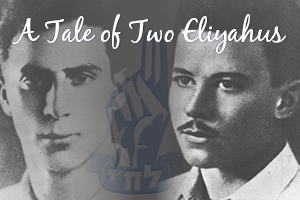
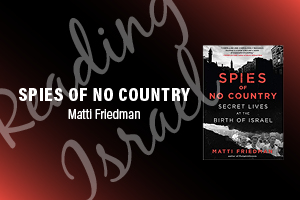
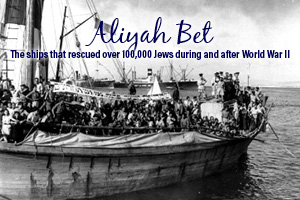
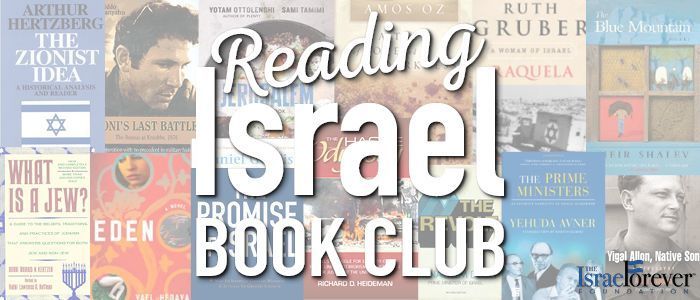
Leave a Comment on Israel Forever